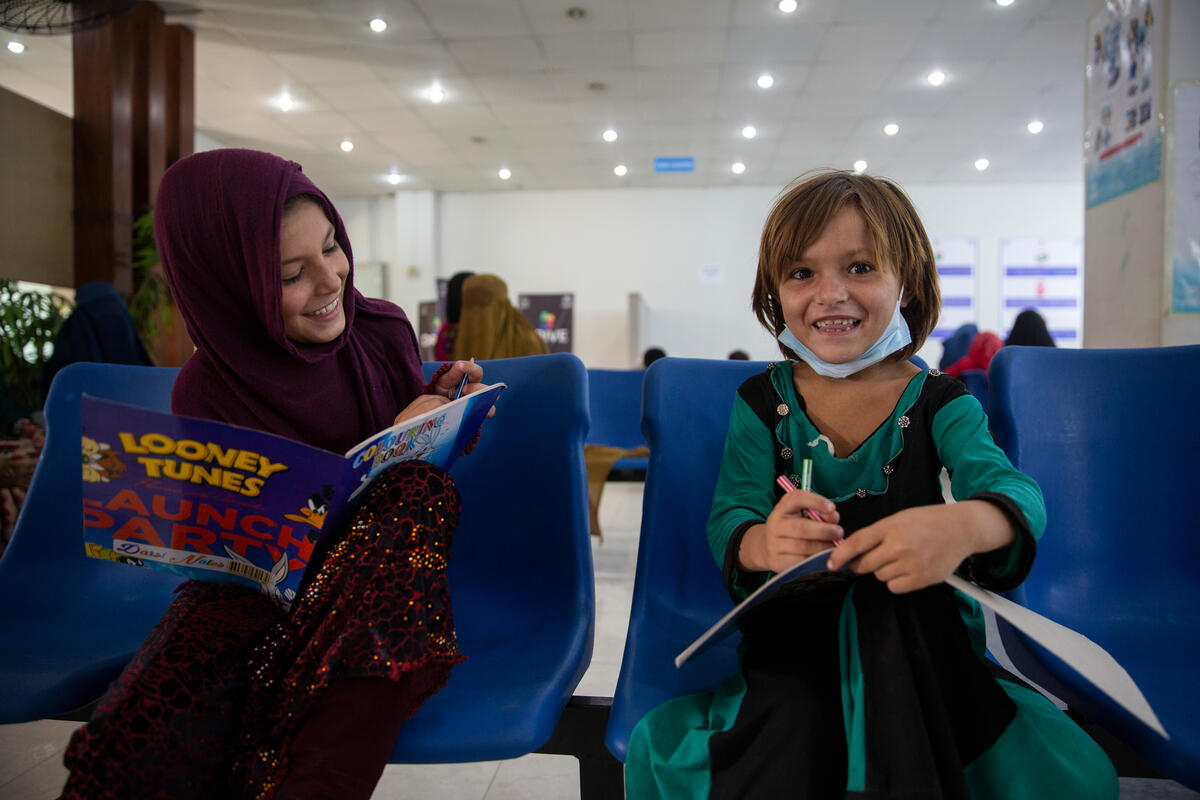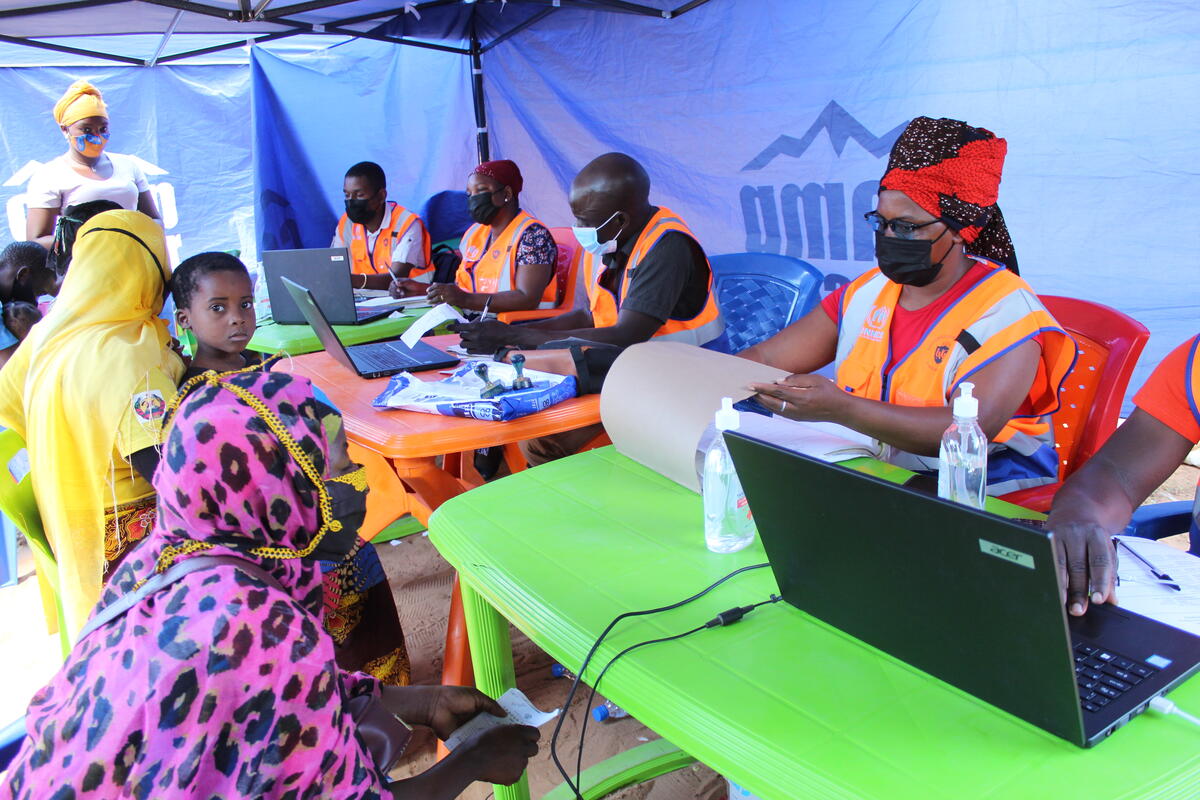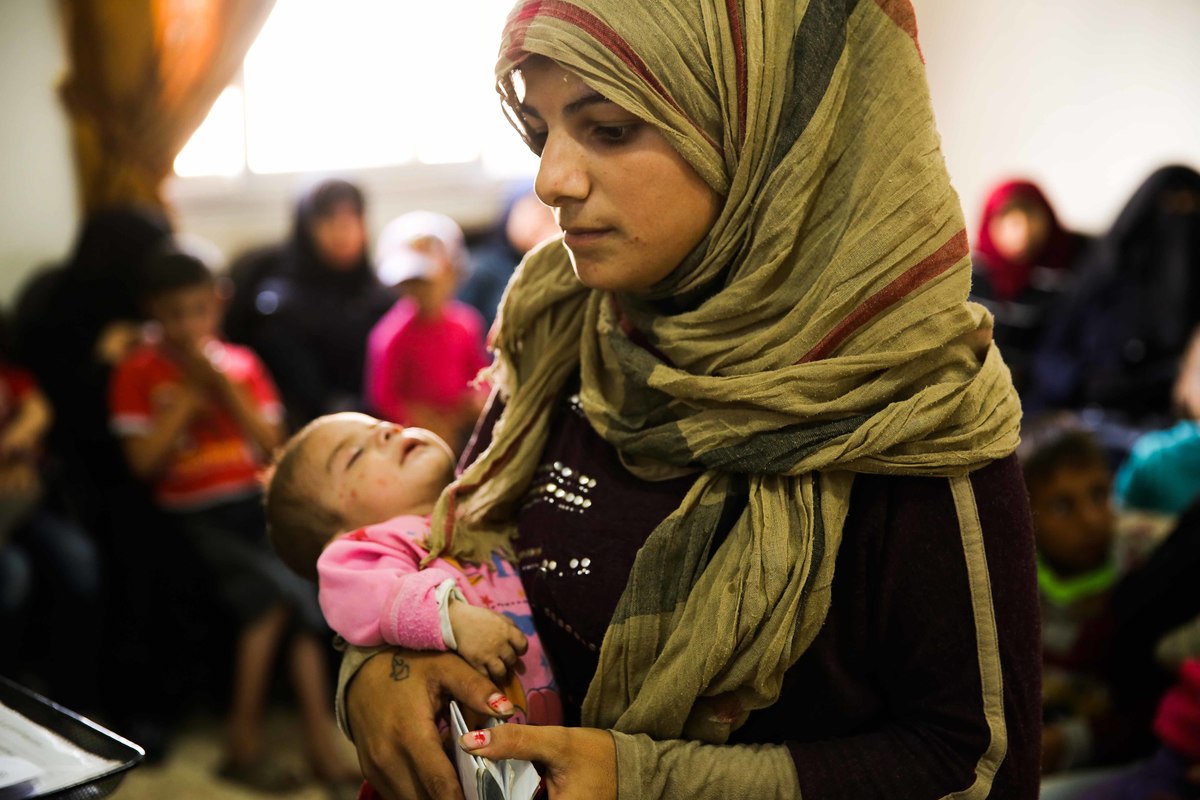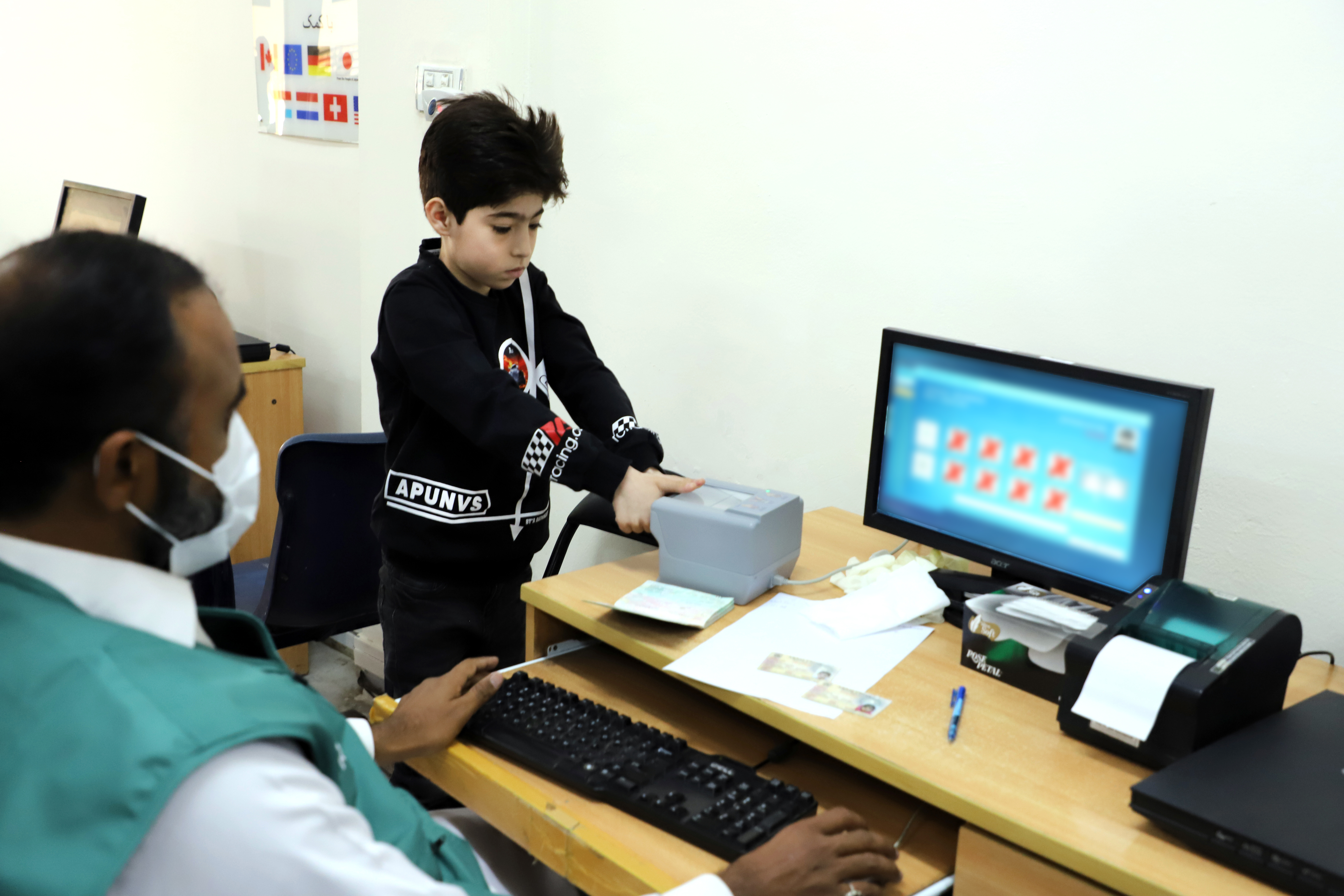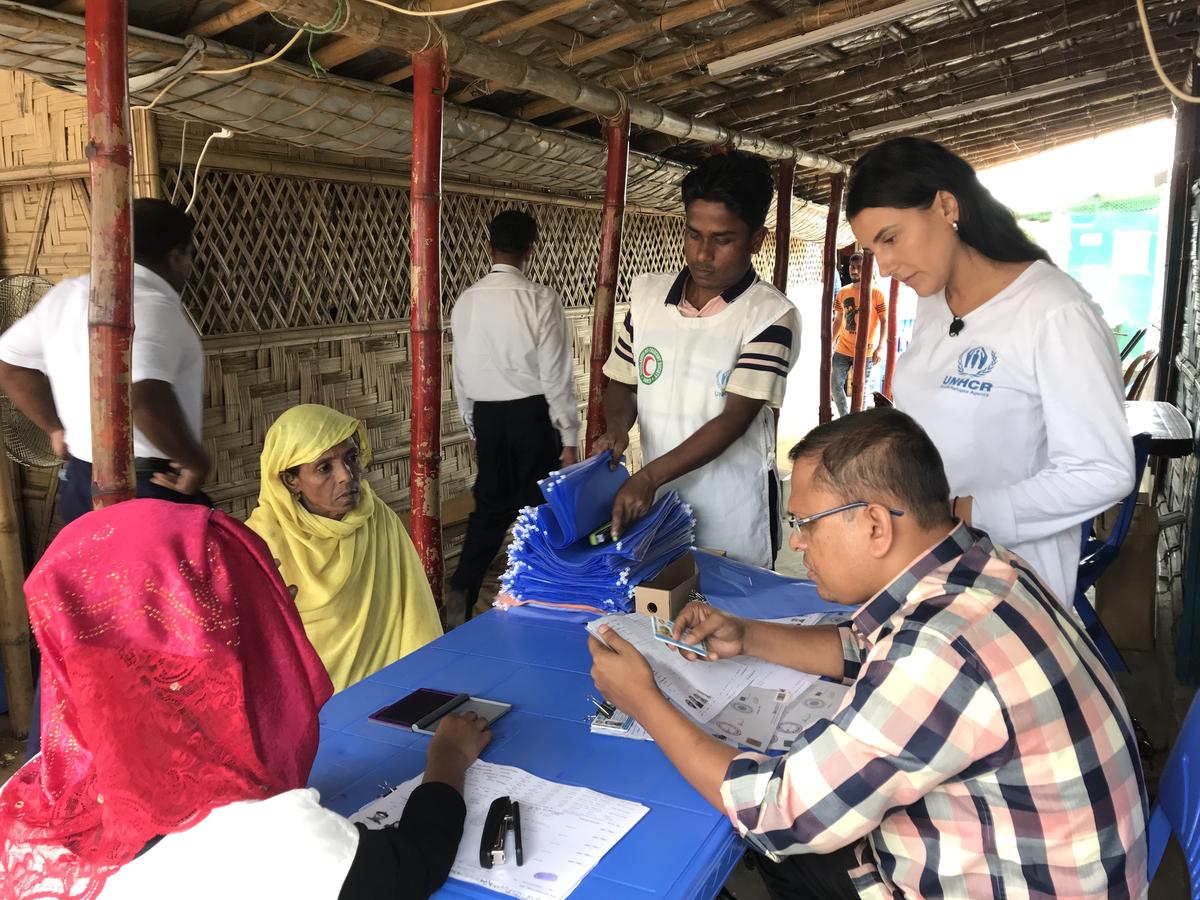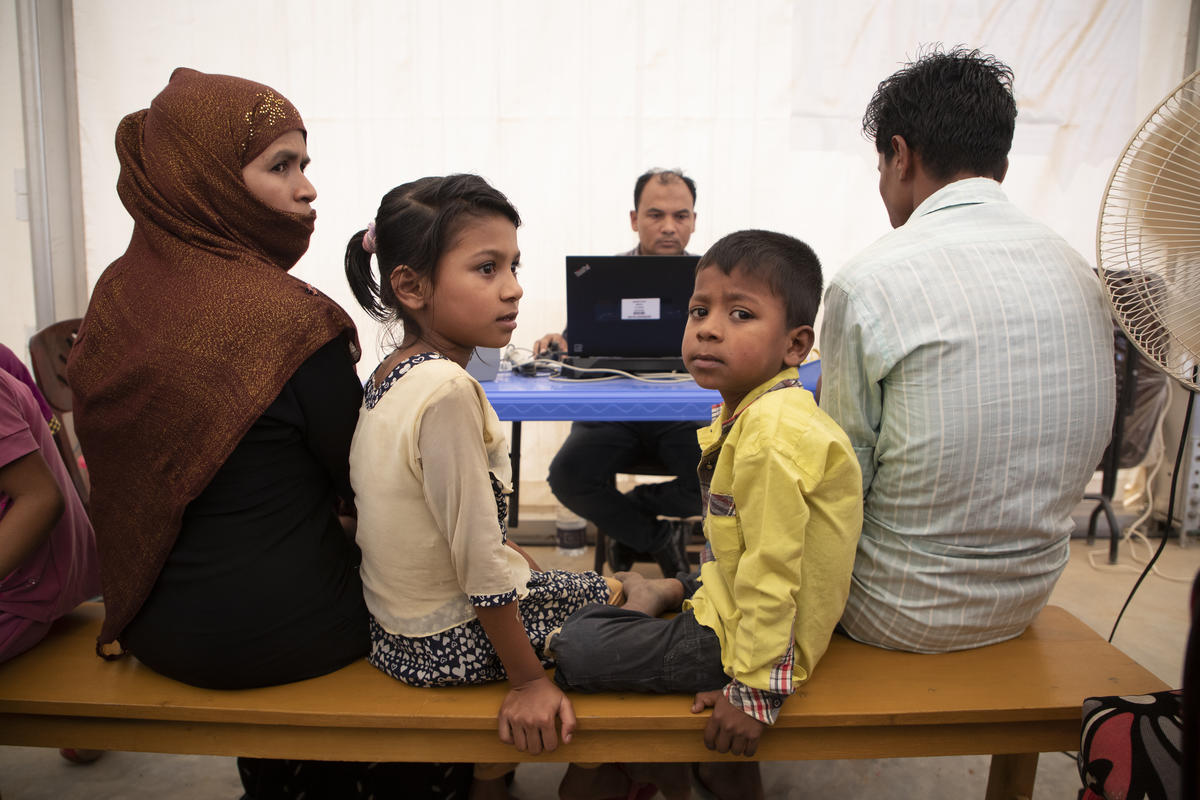Pakistan, UNHCR say census counts 3 million Afghans
Pakistan, UNHCR say census counts 3 million Afghans

ISLAMABAD, May 2 (UNHCR) - A census carried out across Pakistan by the federal government earlier this year has produced the first accurate figures ever on the number of Afghans living in the country, counting just over 3 million Afghans who have arrived since 1979.
The results of the census, which received technical and financial assistance from the UN refugee agency, were unveiled today at a joint government-UNHCR news conference in the Pakistani capital. Previous figures of those who had arrived since the Soviet invasion of Afghanistan had always been estimates.
The census of Afghans carried out between late February and early March - the first count ever conducted of Afghans in Pakistan - recorded a total of 3,047,225 Afghans who had arrived after December 1, 1979.
Under the agreement setting the terms of the census, UNHCR said it would accept the figures determined in the government exercise while the government of Pakistan said it agreed that not all Afghans in the country were of concern to the UN refugee agency.
"The census was not of refugees only, the census was of all Afghans living in Pakistan," Guenet Guebre-Christos, UNHCR Representative in Pakistan, told the reporters. "We have agreed this is a census of Afghans: some may be of concern to UNHCR, others may not be."
The census, in all areas of Pakistan, found that 1,861,412 Afghans live in North-West Frontier Province, 783,545 in Balochistan, 136,780 in Sindh, 207,754 in Punjab, 44,637 in Islamabad and 13,097 in Pakistan-administered Kashmir or the Northern Areas.
A more detailed report on the data gathered by the 3,000 census workers is being processed and will be available by the end of May. This will include the precise place of residence, source of livelihood, place of origin in Afghanistan, intention to return this year and much other information.
"This data will be vital as the government of Pakistan and UNHCR discuss ways to manage the Afghan population who might remain in Pakistan after the expiry of the current Tripartite Agreement," said Guebre-Christos.
The UNHCR voluntary repatriation programme, which assists Afghans wishing to return home, is conducted under a Tripartite Agreement between UNHCR and the governments of Pakistan and Afghanistan that expires next March. More than 2.3 million Afghans have returned from Pakistan under the repatriation programme since 2002.
Some 400,000 Afghans are expected to repatriate this year, with UNHCR assisting more than 45,000 to return since the start of the 2005 programme in early March.
"The ultimate solution of the problem lies in voluntary repatriation of all these people ... as early as possible. But it should be voluntary - it should not be forced," said Sajid Hussain Chattha, Pakistan's Secretary of the Ministry for States and Frontier Regions (SAFRON). The ministry handles Afghan refugee issues.
The government of Pakistan intends to follow up the present census with a registration next year of all Afghans recorded in the first stage. The cost, to be raised jointly by Pakistan and UNHCR, is estimated at about US$7 million but depends on the nature of the registration.
"After the census, proper registration and issuance of identity documents are essential that could be used by local and international agencies for security, immigration cross-checking and anti-terrorist initiatives," said Jahangir Khan, Chief Commissioner of Pakistan's Commissionerate of Afghan Refugees.
"The government of Pakistan and UNHCR would mobilize the donor community for timely contribution toward this important effort," he said in a joint statement read to the news conference.
UNHCR and the government of Pakistan have begun discussing the future management of the Afghan population expected to remain after the current Tripartite Agreement. While some will remain of concern to UNHCR, others could fall into categories such as visitors or migrant labour for which new management mechanisms will have to be developed.
UNHCR and Pakistan are studying ways to help both Pakistani and Afghan populations in areas where Afghans are not expected to repatriate in the immediate future. They are also examining sites where international assistance could be sought to rehabilitate areas damaged by the presence of refugees who have since returned to Afghanistan.
By Jack Redden
UNHCR Pakistan


